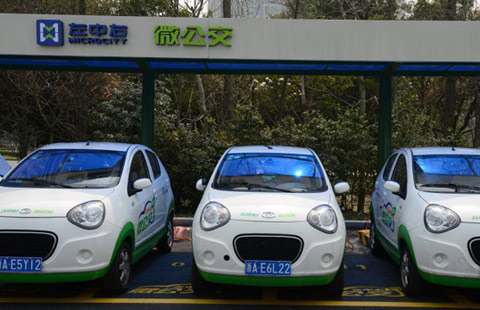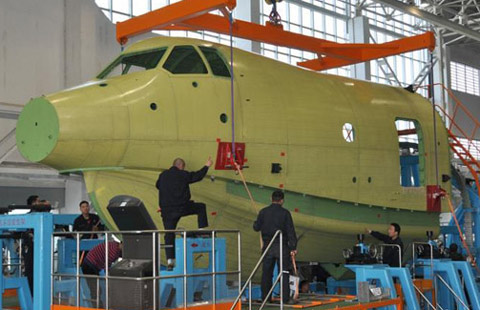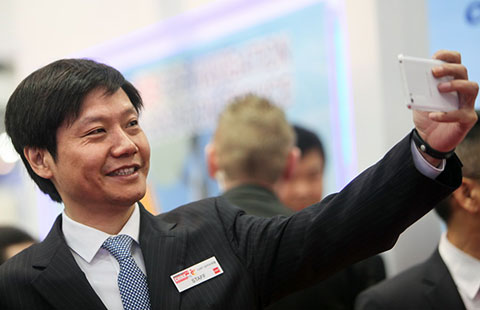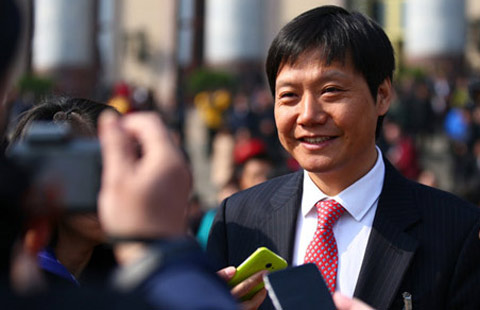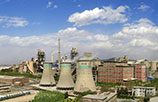Star cities in race for foreign capital
By Ding Qingfen in Xi'an and Zheng Yangpeng in Beijing (China Daily) Updated: 2012-05-23 09:05
|
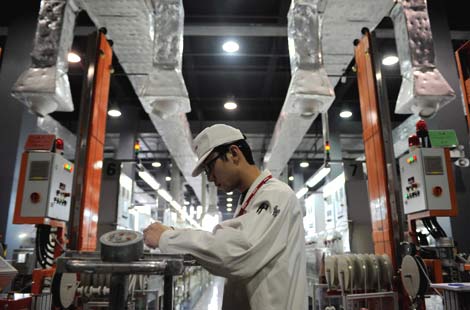 |
|
A worker at the Molex factory in Chengdu. The world's leading electronics connector manufacturer plans to make its plant in the capital of Sichuan province its largest in the world. [Photo / Xinhua] |
Early in 2003, Intel Corp, the world's leading semiconductor maker, announced it would set up a factory for testing semiconductor chip packaging in Chengdu, which came into operation in 2005.
The decision was made after rounds of negotiations by Intel with some cities, including Xi'an.
"We chose Chengdu for the cultural environment, forward-looking government and excellent labor resources, not for the labor cost," said Bian Chenggang, general manager of Intel Products (Chengdu) Co Ltd.
The State Council has designated Chengdu as China's western hub of logistics, commerce, finance, science and technology.
Chengdu was characterized as "a benchmark city for the investment environment in inland China" in a report by the World Bank.
By the end of 2010, more than 200 out of the Fortune 500 companies had operations in Chengdu, making it first in the number of Fortune 500 companies in central and western China.
Xi'an and Chongqing have also emerged as rising stars.
During the past one or two years, Chongqing has quickly gained momentum and attractiveness as an FDI destination. In 2011, the city's FDI hit a record high of $10.53 billion, almost one-fifteenth of the national total.
"The growth was striking during the past two years. I, together with the team, am becoming busier and busier, and we almost had no weekends in the past two years", said Li Qian, director in charge of facilitating FDI for the Chongqing government.
"In the past, it was difficult to see even a director of a global company. But now, it's not easy for them to find us and talk to us."
Despite the suspension of Bo Xilai, the former Chongqing Party chief, from his official post, the city is still opening up and welcoming investment.
In May, China Development Bank, the country's main policy lender, signed an investment deal with the local branch of the State Assets Supervision and Administration Commission to lend money to help the city build roads, finance low-income housing, build industrial parks and fund industries from petrochemicals to agriculture.
"FDI is a big engine in stimulating the economy. And it's not only about economic growth," Li said.
"Projects by big foreign companies always have a strong ripple effect. When they come to Chongqing, others will come here."
As a latecomer, Xi'an, compared with Chengdu and Chongqing, lags far behind, having only $2 billion in FDI in 2011.
But the city is running as fast as it can to catch up. In 2010 and 2011, FDI surged by 29 percent and 28 percent year-on-year, up from 2.7 percent and 6 percent in 2008 and 2009.
"We saw rapid growth in the city's FDI in the past two years. Of course, the reference point was low," said Li Zhijun, director of the Xi'an Bureau of Investment Promotion.
The momentum is projected to be maintained, with Samsung having announced its $7-billion-investment project in Xi'an. This is the largest single foreign investment that the western region has ever received, and "many other foreign companies are highly likely to follow suit to set up factories in Xi'an," said Li Zhijun.
No fierce competition
Li Qian from Chongqing said that as more foreign companies look at the western part of the country, it's unavoidable that the three cities will compete.
"Competition will be there, but it is far from fierce as expected, as we each have our own advantages and could differentiate ourselves from one another with different growth plans," he said.
"It is wise for us to cooperate with each other to turn the western part of the country into a more prosperous region."
Chongqing is home to many foreign companies in the vehicle, chemicals and computer industries.
Xi'an has many foreign investors in the healthcare and aerospace businesses.
Chengdu is a center of software outsourcing, logistics and commerce.
"The three cities could build themselves into hotspots representing specific industries," said Li Qian.
Chengdu and Xi'an have a large number of institutions of higher education, sources of skilled labor for foreign companies.
Xi'an, in particular, has more than 100 colleges, universities and vocational schools, the third most in the country. Every year, more than 1 million college students graduate in the city.
Compared with Chongqing and Chengdu, Xi'an is late in opening up, said experts.
"But from a comprehensive perspective, Xi'an is stronger and more attractive due to its talent resources, improving infrastructure, more efficient government and a good consumer market," said Zou Gang, general manager of Applied Materials Xi'an.
The US company is the world's leading chip maker and also one of the first foreign companies that invested in Xi'an.
As a municipality, Chongqing has more support from the central government and can be more efficient in drafting and putting into effect policies related to FDI, Li Qian said.
"We have sufficient resources and a bigger consumer market, as we are closer to Central China compared with Xi'an and Chengdu," he said.
Late last year, China introduced new FDI guidelines, encouraging foreign companies to invest in the high-tech, service and high-end manufacturing sectors, as part of its transformation of its growth model.
As a city that moved earlier to open up to foreign companies in the western region, and one that has been committed to improving its infrastructure, Chengdu is turning into a more business-friendly destination.
Intel early this year opened its Chinese headquarters in Chengdu. "I give top marks to Chengdu. We think highly of the city (and) Chengdu is where Intel's long-term strategy lies," said Bian.
This March, General Electric's first innovation center came into operation.
"Chengdu has many talented people who could contribute to innovation," said Ma Jianing, vice-president of GE China.
In 2013, Chengdu will host the Fortune Global Forum, the first western city in China and the fourth Chinese city (after Shanghai, Hong Kong and Beijing) to do so.
This, as many explain, further buttresses the city's strategic and economic position in the western region.
"It just fits all the criteria we have. It (Chengdu's hosting the forum) takes the city into the next level ... raises its visibility to CEOs and global leaders," said Serwer.
Contact the writers at dingqinfen@chinadaily.com.cn and zhengyangpeng@chinadaily.com.cn
- Property market slides further, expects more support
- Uber expands reach with Yongda alliance
- Microsoft tackles China piracy with free upgrade to Windows 10
- China Feb net forex purchases at 42.2b yuan
- Luxembourg confirms to become founding member of AIIB
- China calls countries interested in AIIB to join by Mar 31
- Thai banker calls joining AIIB 'irresistible trend'
- Five trends driving China's e-commerce surge
